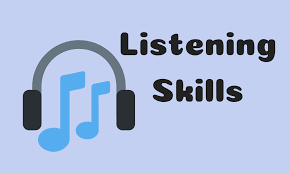
| Paging |
|---|
1. There are 40 questions in four sections, each including 10 questions.
Section one: two persons talk about daily issues, so the content is social. Section two: one person talks about a subject of social content like a club, building, and museum. Section three: two to four people talk about an academic issue. Section four: one person lectures about an academic subject. |
2. Practice using the answer sheet.
3. Only once you hear; get ready before listening and practice a lot prior to taking the exam.
4. Use pencil for writing the answers.
5. You may write the answers in capital letters (JOHN SMITH) or lower case (John Smith)
6. Read the instructions carefully inasmuch as the required number of words in answer may change.
ONE WORD ONLY (or) ONE WORD AND/OR A NUMBER (or) NO MORE THAN TWO WORDS
Note that " a holiday" is two words and "1950" is one word.
7. Sentences must be grammatically correct.
You hear: "People's focus may change by the situation in which they are." The question reads: The ---------- factors can determine the focus of a person. (an adjective is needed, so situational is the answer.) |
9. Read the questions, ensure you understand them and underline the key words.
Key words are usually nouns, verbs, adjectives, adverbs and question words. Key words usually are not articles, conjunctions and prepositions. In the sentences below, the key words are underlined: What subject is John studying? (or) How much does it cost? |
10. Predict answer types. Is the answer a name, number, noun, adjective, verb, singular, or plural?
11. IELTS is a test of paraphrase. In other words, most probably, the words you hear are synonymous
with the words you see in the question.
You hear: "The town was built by Germans back in WWII." The question reads: " Less than a century ago, Nazi soldiers constructed the city" |
12. Do not try to understand everything. There will be a lot of extra information given in the recordings
and you need to just relax and focus on answers that you are looking for.
13. Sometimes, there is a gap between the answers; do not get nervous.
14. Answers can come quickly, or they may come at irregular intervals. Thus, you may encounter a
part in which three answers come in sequence, so keep your eye on the next question.
15. Try not to write the whole answer; note down abbreviations.
apt. (apartment) temp. (temperature) | vet. (veteran) SW (Southwest) | BA (Bachelor of Arts) VP (Vice President) |
16. Look for the title. The title helps you prepare for the subject that is coming.
17. Pay attention to any information that answers the questions what? when? where? how? who? …
what? when? where? how? who? | an action movie. last night. at the cinema. interesting, fun. Bruce Willis. |
18. Guess the meaning of unknown words from the context.
19. Read the question and guess the answer.
The question reads: " John would like to meet Mary at -------. The answers can be a place( station) or time ( 8 p.m.) |
7.